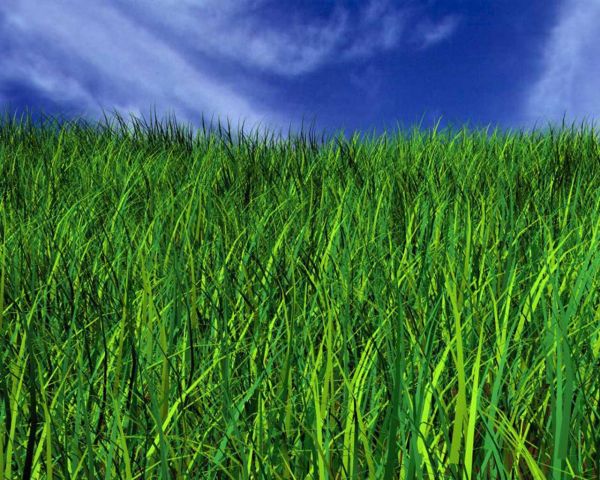A slight segue from what we normally discuss here, but a question for you: because I just don’t get it.
What is the big fuss about selling privately owned land to foreigners? I really don’t understand that. It is pretty simple: you don’t own that land now, or have any rights over it now – and nor will any of that change in the future. The simple adage is that they cannot take it with them. The land will still be there – and still be just as unaccessible to you under foreign ownership as it was under domestic ownership. They can’t change the law on their land, it is still completely under control of the NZ government, and any income derived from it still has to pay taxes from it, just the same as any other business. Whether the production of milk solids from it goes to China or goes to Fonterra, either way it is not coming to your pocket. So what is so different?

One argument is that foreign buyers can afford higher prices, and so are putting it out of reach of ordinary kiwis. Well, as an ordinary kiwi, property of virtually any sort is out of my reach regardless, and especially 10,000 hectare dairy farms. They’re not buying small inner city flats, or empty sections on the side of a Wellington hillside. They’re not buying the foreshore or seabed either.

One thing that foreigners could buy, and take away / close down / sack all the staff / run into the ground, is a share of a New Zealand business. If foreigners are allowed to buy businesses, that really has an effect on our country. Or could have. What if some overseas company was to buy our railways, run them down, sack all the staff, stop all the maintenance, suck all the money out of it? Oh, wait – that already happened, with a New Zealand company. In fact, Kiwis seem to have been quite good at that. How did Fay and Richwhite get away with it? They were New Zealanders then – they’re living in Switzerland now, with a large portion of New Zealand’s money in their pockets. Isn’t foreign ownership of businesses just so much more problematic than sale of land?
I know that in Europe, foreign ownership of holiday houses is a problem for the locals, and places to live have been priced out of range of the local population over a period of many years. It started with the English owning a weekend cottage in Wales, to which the Welsh responded by burning them down (“Come home to a nice evening fire – in Wales”), but has been extending all over Europe, to lesser-priced economies such as France, Tuscany, Spain, and now Croatia, Greece etc. But there is a big difference here. There are very few people that will be flying in here for a weekend away. There may be the odd Shania Twain who wants a high country retreat, set in a secluded tussocky station, but how does that cause a problem? I couldn’t walk on that land before she bought it, and I can’t walk on it now. One day she’ll sell it to someone, and that person could be in NZ or another world citizen. So what? The land itself stays just as it ever was.





Maurice Williamson suggested this was a racial issue a few months ago. David Farrar of Kiwiblog also owns a professional polling company and recently presented some figures that suggest Williamson is right, that we’re reasonably comfortable with Aussies and Brits owning farms but no way to we want Chinese people owning them.
Labour are making a play for the NZ First anti-Chinese vote.
There are some issues that need looking at tho. My impression of the current farm ownership process is that farmers spend their whole career purposely in debt so that they don’t pay much tax, then make all their returns when they retire and collect the capital gains. That’s not a normal healthy business model and was at least partly responsible for the collapse of SCF this year. It also means a Chinese entrepreneur who thinks a farm should actually make a regular profit is going to run rings around a Kiwi farmer whose aim is reducing his tax payments.
It’s a strange thing.
There’s something about plots of land that make people do strange things.
My parents still have the 6 acre section that I was raised on. I have no desire to ever go back there, but I don’t want them to ever sell it. I want to be the one who decides what to do with that land. This section of land that I really dont care about. It doesn’t make logical sense. It’s something emotional.
The foreign land issues is clearly wrapped up in some thinly veiled xenophobia in New Zealand. One doesn’t have to look too hard to find the other institutionalised irrational fear of the outsider. Every week there is a new week about doctor shortages, and how we’re finding it increasingly hard to attract and retain doctors. Go talk to some foreign trained doctors. And I’m not talking about foreign as in medical schools in carribean diploma mills or some other less than honourable place. Doctors trained by prominent institutions in the US, UK and Germany. Doctors who have reached the highest levels of credentials in their home countries, countries which lead the world in health research and education, come here and are treated by the Medical Council as if they don’t deserve to be here. Most end up working in positions that don’t recognise their professional status – not because of any evaluation of their work, but because of a bureaucratic protectionist scheme. Protecting what though? It’s not based on any logic, it’s based on some irrational emotional fear of the “other.” If the department of labour followed up on the number of doctors who immigrate to NZ only to return to their home countries, what they would find would be a scathing indictment of not only the campaign to attract foreign doctors, but of the professional licensing scam that promotes being kiwi over professional credentials and quality of care.
The larger irony is that the biggest threat to land ownership in NZ, not only in the escalated property values, but in the ability of younger generations to afford homes and property of their own is not foreign investment, but an idiotic policy of no capital gains tax. The number of boomers with second homes and investment properties have inflated prices and made home ownership unavailable to future generations. If there is something that should be done about land ownership it should be taxing income from investments at the same rate as wages. But it’s far easier to gin of fear of a boogeyman than to tell people that they’re ultimately responsible for their own problems.
I don’t know much about any of this, but I think it is argued that a NZ’er is more likely to spend their profits here in NZ, therefore those profits contribute to our economy more-so than those that go off-shore…?
What shouldn’t be discounted though, is rather less xenophobia than the perception of a loss of kiwi identity, which is of course based on the NZ farmer. ‘He’ needs a farm to maintain that of course… How would we look at ourselves and our culture if the good keen man was simply the labourer/foreman for a multinational corporation…? Things like this aren’t rational, but no less important in the national psyche (I guess)
m-d>it is argued that a NZ’er is more likely to spend their profits here in NZ, therefore those profits contribute to our economy more-so than those that go off-shore
Any profits made in NZ will be denominated in NZ dollars. They’re only usefully spent in NZ, or traded with someone who wishes to buy something in NZ. Either way they eventually come back to the NZ economy.
I had a similar discussion with an Aussie who claimed that evil Asians were selling them manufactured goods but not buying anything Australian made in return. Of course sales in Australia are in Aussie dollars which eventually must be spent on something Australian. He couldn’t understand this. I eventually hit him with “so they’re sending us plasma TVs and cars and don’t want anything in return… surely that is a great position to be in?”, but I doubt he was convinced even then.
For myself, I’d like to distinguish “foreigners”, whatever that means, from “non-residents.” People who live in a community are a bit more susceptible to persuasion from the community.
I’d like to second the remark about foreign-trained doctors, by the way.
Thanks Stephen- I had meant to bring that up as well. I’m a permanent resident, but not a citizen – am I foreigner? I certainly am reminded quite often that despite choosing this to be where I would like to stay that I’m not nor ever will be a kiwi. For many with this anti-foreigner attitude it doesn’t matter whether you intend to stay and contribute positively to the economy and try to blend into the culture as much as possible – unless you’re born here you have no right to anything. I think Labour needs to be very careful about how much anti-foreigner attitude they want to stir up.
I’ve often wondered that as well. How many of the ‘foreigners’ buying up property here are actually non-residents kiwis living abroad? I suspect quite a few of our B Com grads living and working in London and New York, earning megabucks, like John Key, have bought a flat / bach / small farm in NZ – but may be still classified as foreign ownership.
Certainly when I was living abroad I would have loved to buy somewhere to live – but on an architect’s salary, who could afford to? But I would have been, technically, a foreigner, albiet a resident one.
good point guy. One can imagine the screaming if the ban on foreign ownership included kiwis living overseas after so many years. To me this is all cynical posturing to avoid the topic which needs to be addressed, one which the tax working group identified as a significant problem in the NZ economy – land investment. If the overall problem of land investment was solved then foreign ownership wouldn’t be as significant a problem. But like I said, easier to find a scapegoat than to be realistic.
I have no doubt that xenophobia is _a_ driving force in this issue. But this is a complex issue with _many_ factors.
An important issue is that absentee landlords are perceived (rightly or wrongly, personally I’m for the former) as having less of a stake in the land.
Another is in control of the means of producing food. Imagine a hypothetical situation where we couldn’t afford to buy the produce of the land in which we reside. This may be unlikely but where should we draw the line.
Now, if you accept that land ownership is about stewardship (after all you can’t take it with you when you die) then it must be clear that those who benefit most from its intelligent use are those that love and live in and on it. It is a logical conclusion then that those that do are more likely to make intelligent uses of that same land.
It’s easy to confuse these issues (because that’s the intention) with the xenophobic breakfast TV and radio callback point-of-view that simply doesn’t like the ‘other’. Foreigners who are more like ‘us*’ are perceived as less ‘foreign’.
It’s a bit of a cliché, but we were all immigrants at some stage. It could be argued that if you’re resident then ownership is a right that should be given up on (or at some determined date after) permanent departure. Naturally this should be debated and the idea that small (family?) parcels of land be exempted seems fair.
* Us, in this case is pakeha. If our media (and general public mindset) were dominated by a Maori perspective it seems likely that Pacific Islanders would in turn be perceived/presented as less foreign than the English or Australians.
Josh- You make some good points regarding the notion of stewardship and having it owned locally by those who live on it and take care of it. This same reason would exclude corporate ownership from land, regardless of what nation the corporation is based in. We have seen the record with corporations and ethical responsibility – there is none. I actually would have no problem with a policy that rewarded those who live on the parcel of land they have and are stewards of it. The proposal isn’t about land stewardship but about the scary foreigner who’s going to steal our land, force us into slavery and eat our children.
Well, they might force us into slavery, and eat our children, but they still can’t actually take the land away. But anyone can steal / occupy land, and still be a New Zealander. We’ve got a good century or two, or probably twelve centuries, of people nicking each others land without paying for it.
@Minimus
Agreed. I guess what I was trying to say was that the bigoted reasoning is getting all the attention. My fear is that there are rational non-racist reasons for wishing to restrict foreign land ownership which are getting tarred with the same brush. I seriously doubt that the Greens are against foreign ownership for (consciously) xenophobic reasons, though I would listen carefully to any arguments to the contrary.
As to the issue of corporations and ethical responsibility I’d argue that in this case, ‘better the devil you know’. NZ corporations, arguably would be the better known devil, with a NZ board and at least some greater degree of interest in the wider community.
On the citizenship issue: my wife is a Japanese national and is unable to hold dual citizenship. If land ownership were restricted to citizens, and she wished to maintain her nationality (how ridiculous does that sound?) AND live here she would be prohibited from owning the land she was ‘stewarding’. Ridiculous.
We need to fight to keep the xenophobic point of view from dominating the debate. I feel that I have the right to oppose overseas ownership without being accused of racism.
Interesting perspective from Gareth Morgan:
http://www.nzherald.co.nz/opinion/news/article.cfm?c_id=466&objectid=10681447
To summarise… if you restrict asset sales to foreigners then get ready for lower income, a worthless currency, and a trading system based on barter.
“get ready for lower income, a worthless currency, and a trading system based on barter.”
but also, presumably, more affordable homes ?
What is good for the goose should be good for the gander.
If it’s ok for another country to ban ownership of their land by NZ’ers why should we open up NZ land to foreign ownership?
I can see both sides of the argument…
The real issue is falling real income levels are making purchasing land for the ‘average’ NZ’er a thing of the past.
Regarding the bit about what Gareth Morgan is saying, I’m a bit lost. Gareth is a smart bloke, but maybe what he is saying is being misread. It seems an assumption is being made that the only thing worth buying with NZD is land. If that’s the case then we’re well and truly screwed aren’t we?
What about all the stuff produced on that land? What about the stuff produced in our factories (ha-ha-ha)? Or hopefully our great ideas and inventions from our massive knowledge-based economy that was spurred on by insightful government policies such as R&D credits (much more ha-ha-ha)?
I thought the idea would be people make stuff in factories in China for next to nothing. We exchange Kiwi Peso for Communist Yuan to send many Yuans to the owner of said factory so they put said “stuff” on a boat bound for our shores. In return they exchange many Communist Yuans for few Kiwi Pesos to send to our blokes in black singlets, and nerds in coffee houses, so we put milk and ideas on boats bound for them.
Buying land? I can’t see where that is meant to fit into with this picture. It’s just like us buying their factories instead of their goods. Maybe we should be doing that, we’d be a lot richer.
AWB>but also, presumably, more affordable homes ?
They’d certainly be cheaper. Real estate is usually inexpensive in places with a collapsed economy.
erentz>It seems an assumption is being made that the only thing worth buying with NZD is land.
That IS an assumption. NZ is generally pretty resistant towards measures designed to increase GDP. Greens would prefer electricity be made renewably and much more expensively and that makes our exports less competitive. Just about everybody is opposed to mining. I suspect there would be rioting in the streets if anyone hit oil off shore. And our actors seem to prefer solidarity with their Aussie brothers rather than a NZ film industry. So good luck with building a trade surplus for possibly the first time since 1973, if by some miracle we ever had a surplus before 1973.
Rent farmland to non-residents but don’t sell it. Ownership of farmland should be retained by residents of this country. The ability to maintain control of our ability to grow food is essential.
I’m not concerned about foreign investment in companies that rent the land, nor for that matter foreign ownership of residential land, banks, insurance companies etc. We can always produce more houses, another bank (like Kiwibank), but we can’t create more land to grow food.
Josh, I see no problem with your Japanese wife owning residential land if she lives here or not. She should also be able to buy farmland if she lives here. But if she returns to live in Japan or elsewhere she should have to sell it.
Pakeha>The ability to maintain control of our ability to grow food is essential.
Errr… A farm located in NZ is subject to the laws of NZ irrespective of the nationality of the owner. Generally owners act in their own commercial interests, as is obvious to anyone who has seen the price of NZ cheese produced by NZ-owned cows and processed by NZ-owned Fonterra. But if, for arguments sake, foreign farm owners decided to starve us in to submission then we could pass a law forcing them or their farm managers to produce butter, wine, and lamb and enforce the law using the NZ police.
Talking about Fonterra… they have significant holdings in Australia and elsewhere in the world. Should the Aussie government be worrying about NZers controlling their ability to grow food, and forcing Fonterra to sell up? Globalisation has given us the greatest reduction in poverty the world has ever seen. Why do people want to throw this away, just because they’re scared of Asians?
“The land itself stays just as it ever was.” But does it? One could argue that an overseas owner will have less incentive to maintain the state of the land with any look towards the long-term future. They are likely to attempt to maximize their profit and that is not always compatible with making sure that the land stays just as it ever was. Unless their business is tourism.
I can certainly see the land being exploited and then discarded in the process of supplying food to one of the biggest nations in the world and I’m not a xenophobe because I’m a xeno myself ;-)
On the other hand we are pretty good at ruining our own land. I mean whose idea was it to turn all that arid Canterbury land into dairy farms? Where the hell is the water and the nutrients supposed to come from?
-t
Tomek – “One could argue that an overseas owner will have less incentive to maintain the state of the land with any look towards the long-term future.”
No, one couldn’t argue that and win. There are shitty people in this world, and some of them live here and some of them live there. One of the worst dairy farmers in the country at present is a Kiwi, Mr Crafar, who was taken to court over maltreating his cows – and then he went bust and was forced to sell his land – as it happens, to the Chinese.
It seems doubtful that the Chinese would be worse at treating his cows than he was…. but also, its doubtful that you will see any Chinese workers on his farms. They’ll be most likely farmed that way they always have been, with Kiwi lads working for a few bucks an hour wage. The poo and piss will still run off into the creeks, and pollute the local waterways. The cows will still be made to produce painfully large amounts of milk through their grossly swollen udders, and their milk will still go to a milk factory staffed entirely with kiwis, and then the milk products will still be sold to the chinese – except this time they will sidestep fonterra, and pocket that part of the check themselves.
So what has happened?
The land is still in NZ.
The workers are still in NZ.
The cows are still in NZ.
The factory is still in NZ.
The money is no longer in NZ – at least, the profit from the sale of the milk products is not, but the money from the sale of the farms is still the same place it has always been – in NZ – or more truthfully, with the Aussie banks.
You can’t “work and discard land” – you can certainly trash it, and the kiwis of this country – farmers and townies, maori and pakeha – have been good at doing that for thousands of years. Maori burnt off massive amounts of bush to create forraging land, and pakeha finished off the burning and trashing process. We’ve extinguished most of the native fauna on the way. It can’t be much worse can it, short of the chinese allowing open cast mining on schedule 4 lands – oh no, thats the government doing that. or allowing dairy cows to roam over all sorts of water ways – oops, we’re already doing that too. or considering massive feedstock barns in the south island where the cows just stand till they are near dead and then we kill them and eat them. Chinese cruel and horrible people? No, we’re just as bad…
Struth Max, this is getting like Kiwiblog
Struth indeed my furry concrete coloured friend. I don’t mind people discussing politics – we all seem to be relatively sane here, and these are interesting ethical questions. We’re not as rabidly rightwing as Kiwiblog or WhaleOil or those – sorry if I’ve got them wrong – I never really read those. But I agree, maybe too much ranting. I’m sure we will return to a more concrete subject soon – or should I say, bricks and mortar?
In the meantime of course, it being a fine(ish) weekend, I’m splashing around in the shallows. Come on in and catch me – the water’s lovely !